The views expressed in our content reflect individual perspectives and do not represent the authoritative views of the Baha'i Faith.
A poet and a mystic and a renowned 19th century scholar, she heroically died for the cause of women’s emancipation – and everyone needs to know her name.
In 1848, in the early days of the Babi movement, a three-week conference took place in Badasht, Iran, attended by about 80 men and one woman – the courageous Persian poet named Tahirih. In the course of that conference, to symbolically reinforce the Bab’s new teaching of the equality of women and men, Tahirih removed her veil, a revolutionary act in that culture and at that period in its history.
The intense consternation and violent emotion this caused reverberated far beyond her time and place.
Although many condemned her unveiling, the Bab, the youthful leader of the spiritual movement sweeping the entire country, supported Tahirih in her radical action. The Bab’s followers, he explained, would have to reconcile themselves with the new social teachings, disruptive or not.
The Bab’s successor, Baha’u’llah, who would later found the Baha’i Faith, was present at the conference and also supported Tahirih. In spite of the storm of chaos stirred up at Badasht, Baha’u’llah gave her the name “The Pure One.” He also made the equality of the sexes one of the primary principles of his entire revelation:
Baha’u’llah proclaimed equality of the sexes – that both man and woman are servants of God before Whom there is no distinction. Whosoever has a pure heart and renders good deeds is nearer to God and the object of His favor – whether man or woman. The sex distinction which exists in the human world is due to the lack of education for woman, who has been denied equal opportunity for development and advancement. Equality of the sexes will be established in proportion to the increased opportunities afforded woman in this age, for man and woman are equally the recipients of powers and endowments from God, the Creator. God has not ordained distinction between them in His consummate purpose. – Abdu’l-Baha, The Promulgation of Universal Peace, p. 300.
Exactly one hundred years after the conference of Badasht, in 1948, another remarkable conference stirred the conscience of the world. The 58 sovereign states that then made up the United Nations gathered in Paris. The moving words which opened the newly penned Universal Declaration of Human Rights issued a global call for equality later adopted as an international agreement:
All human beings are born free and equal in dignity and rights. They are endowed with reason and conscience and should act towards one another in a spirit of brotherhood. – The Universal Declaration of Human Rights, Article 1.
Tahirih would no doubt have applauded the significance of that agreement. During the century that followed Badasht, humanity made huge strides in recognizing equality in gender, race and religion. Although progress has been uneven and much remains to be accomplished, we can now recognize that here and there across the globe, in fits and starts, humanity leaps forward toward equality and justice.
Tahirih’s act did not ultimately concern the wearing or not wearing of a veil. Instead, it symbolized the equality and the empowerment of women to make such choices – to act independently and freely. Whether in dress or action or opinion, promoting and safeguarding human rights will necessarily result in a range of self-expression. Human rights allow the freedom of choice to create diversity, and the acceptance of diversity allows for a peaceful meritocracy of ideas and best practices.
How would Tahirih react to modern ideas and practices, if she were alive now? No doubt she would feel great dismay at the gross infringement of basic women’s rights that continues around the world. But perhaps she would be equally disturbed by the narrow view of emancipation produced by a materialistic lens.
Surely, though, her fight would continue, for the recognition of all humanity as intrinsically spiritual beings, regardless of age or gender. This necessarily entails putting into perspective any superficial differences, which lie far beneath the enormously more important and non-negotiable values of human dignity and kindness.
Tahirih’s ideals emerged from the Revelation of the Bab, who proclaimed, “God desireth not to see … any soul deprived of joy and radiance.” – The Bab, Selections from the Writings of the Bab, p. 80.
Reminiscent of the well-known verse in the Qur’an, “There is no compulsion in religion,” the Bab wrote that:
… the path to guidance is one of love and compassion, not of force and coercion. This hath been God’s method in the past, and shall continue to be in the future! – Ibid., p. 77.
A poem of Tahirih, translated from Farsi, echoes this powerful sentiment:
Let warring ways be banished from the world.
Let Justice everywhere its carpet throw.
May friendship ancient hatred reconcile.
May love grow from the seed of love we sow!


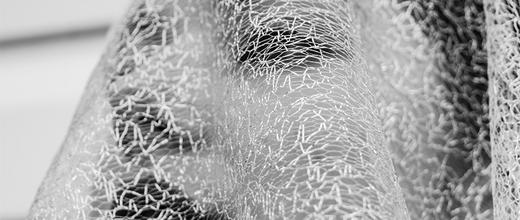


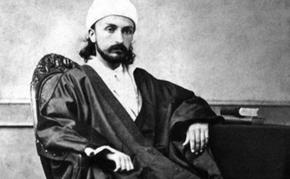


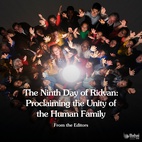
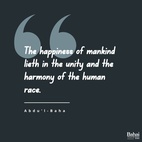
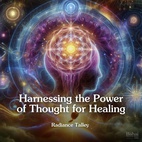

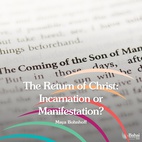




Comments
Sign in or create an account
Continue with Facebookor